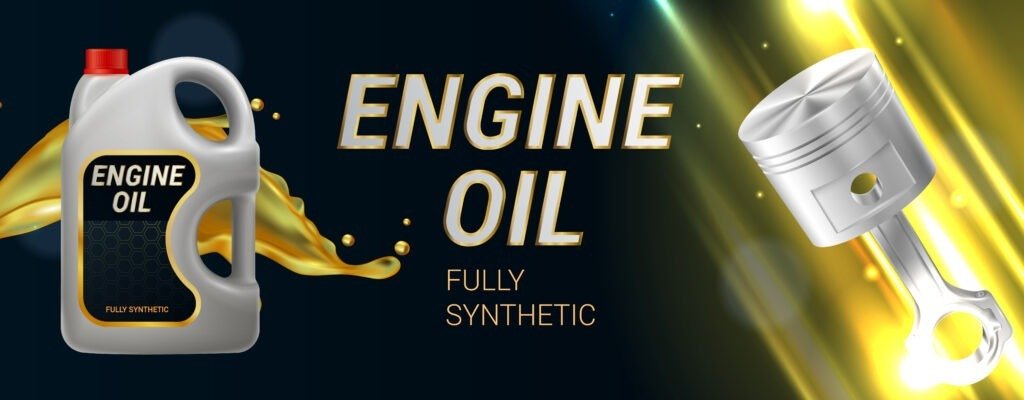Gear problems often start small, like a slight noise when shifting or a bit of resistance while driving uphill. Over time, these small signs can turn into serious damage if not addressed. The moving parts inside your transmission and differential need strong protection to handle heat, friction, and pressure. Using EP Gear Oil helps reduce wear on these parts by keeping them properly lubricated, even under heavy load or high temperature.
Why Your Vehicle Needs the Right Gear Oil
Gears do a lot of work inside your vehicle. They move against each other, turn the wheels, and help you control speed and direction. While doing this, they create a lot of heat and friction. Without a proper lubricant, the metal surfaces rub directly, which causes damage.
Gear oil keeps those parts sliding without wearing down. It also helps control the temperature by carrying heat away. When your vehicle uses the right lubricant, all the moving parts inside the gearbox stay clean, cool, and protected from damage.
How Gear Oil Works Inside Your Transmission
Inside the gearbox, many gears and shafts are turning at different speeds. When you shift gears, these parts slide into place. Without oil, metal parts would grind and create too much friction.
Lubricant flows through the entire system. It forms a thin layer between the gears and prevents them from touching directly. This reduces friction and keeps everything moving smoothly. It also traps dirt and small metal particles so they don’t damage the surfaces.
Some oils are thicker and made to handle heavy loads. Others are made for colder climates and stay thinner when it’s cold. The key is choosing a type that matches how and where you drive.
The Role of Additives in Gear Oil
Gear lubricants aren’t just oil. They also contain special additives that make them work better under pressure. These additives are important for keeping gears safe, especially in high-load areas like the differential.
One common additive in gear lubricants is the extreme pressure (EP) additive. This helps the oil hold up when the gears push hard against each other. These chemicals create a coating on the gear surface, so even under pressure, the metal doesn’t wear out quickly.
Other helpful ingredients include anti-foam agents, rust preventers, and substances that help the oil last longer. These small changes in the oil make a big difference in how your vehicle performs.
Gear Oil for Differential Gears: Why It Matters
Your differential works harder than you might think. It’s the part that allows your wheels to turn at different speeds when you’re cornering. Because of the way it works, it deals with more pressure than regular parts of the transmission.
To handle this, it needs thicker oil with the right kind of pressure-resistant additives. If the oil isn’t strong enough, the gears inside the differential will wear out faster.
Using the correct gear lubricant in the differential helps avoid noise, slow response, and expensive repair work later on. It’s especially important in vehicles that carry heavy loads or drive on rough roads.
Common Signs Your Gear Oil Needs Changing
Most drivers don’t think about gear oil until there’s a problem. But ignoring it can lead to serious damage. Here are a few signs that it might be time to replace the lubricant:
- You hear whining, grinding, or clunking noises from the gearbox or differential.
- Your vehicle struggles when you change gears.
- There’s a burning smell after driving.
- The oil is dirty, thick, or leaking.
If you see any of these problems, it’s a good idea to check the oil level or change it completely. Clean oil keeps your gears protected and your ride smooth.
Tips to Choose the Right Gear Oil
Choosing the right lubricant isn’t hard, but there are a few things you should know before buying:
- Check your owner’s manual – It will tell you the right type and grade for your vehicle.
- Think about the climate – If you live in a cold area, choose oil that flows well in low temperatures.
- Look at how you drive – If you do a lot of towing, hill driving, or off-roading, you may need an oil made for high stress.
- Don’t mix types – Always use the same kind of gear lubricant, especially if it’s rated for a specific gear system.
Modern gear lubricants come in different grades like SAE 90, 80W-90, or 75W-140. These numbers show how thick the oil is and how it performs in hot or cold weather. Make sure to get one that matches your vehicle’s needs.
One option trusted by many drivers is VELVEX Gear Oil, known for its durability and ability to perform well in both city traffic and heavy-load conditions. It’s made to meet the needs of Indian vehicles and roads.
Keeping your engine safe
Keeping your transmission and differential protected doesn’t have to be hard. By using EP Gear Oil, you make sure the metal parts inside your vehicle stay clean, cool, and free from wear. It helps you avoid costly repairs and gives you a better driving experience, whether you’re driving through the city or carrying heavy loads, good lubrication matters.
If you’re looking for a reliable product, VELVEX offers a high-quality range of gear oils made for Indian roads and vehicles. Regular oil checks and the right product will keep your gears running like new for a long time.













































